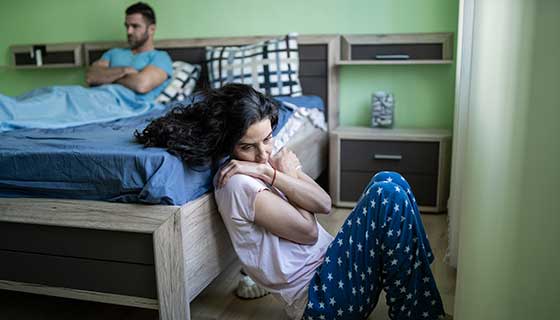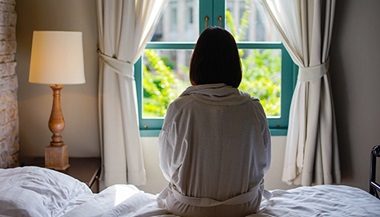Patient Story
Postpartum Depression: Kentlee's Story
Patient Story Highlights
- Kentlee experienced severe postpartum depression, feeling despair and fear after the birth of her child, making it difficult to eat, sleep, and care for her baby.
- The Centers for Disease Control and Prevention reports that around one in eight women experience postpartum depression, but about three-quarters of those at risk go untreated.
- Kentlee sought help from a psychologist at Johns Hopkins All Children's Hospital, who provided coping techniques and support.
- Psychologists emphasize the importance of discussing postpartum depression and anxiety to reduce stigma and encourages families to support mothers going through this challenging experience.
Kentlee, a nurse, reached out to a colleague for help. She wrote to a Johns Hopkins All Children’s Hospital psychologist who has part of her time dedicated to the hospital’s Fetal Care Program through funding raised by A Woman’s Journey.
The psychologist emphasized that many women experience postpartum depression and anxiety disorders and it doesn’t reflect on their identity as a woman or ability as a mother.
Each woman’s experience is different, but about a third of women who experience postpartum depression or anxiety disorders begin to feel like they are not themselves before they deliver the baby, another third has the experience shortly after delivery and another third within a year after the baby arrives.
It’s important to acknowledge those feelings and to be honest with a friend, a partner or a doctor. The more open the conversation is the less stigmatizing it becomes.
Family and friends sometimes unintentionally exacerbate the situation or struggle to understand the mother’s feelings. A new baby can be cause for celebration, but it also is a significant life transition, especially for the mother, who needs time for rest and self care.
Kentlee learned some relaxation techniques and how to recognize what triggered her feelings. Lack of sleep can be a big factor.
“My world got better,” Kentlee says. “My family got better. I learned to smile again."
“Moms sometimes need some help. They and everyone around them need to know it’s OK to ask for it. They’re not alone.”
Johns Hopkins All Children's Fetal Care Program





